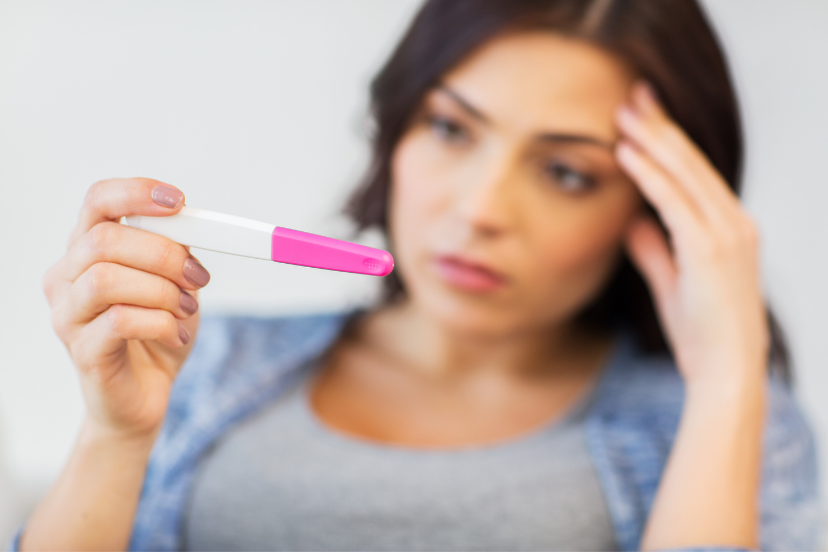Can Osteoporosis Affect Fertility?
Welcome to our informative journey where we delve into the intricate relationship between osteoporosis and fertility. Osteoporosis is a condition characterized by fragile and weakened bones, and fertility is a concern for many individuals at different stages of life. Can osteoporosis affect fertility? In this extensive article, we’ll explore the potential impacts, answer frequently asked questions, and provide you with the knowledge you need to make informed decisions.
What is Osteoporosis?
To truly understand the connection between osteoporosis and fertility, let’s first grasp what osteoporosis is.
Osteoporosis, often referred to as the “silent disease,” is a medical condition where the density and quality of bones are reduced. This makes bones brittle and more susceptible to fractures, leading to pain, limited mobility, and a decreased quality of life. It’s a condition that primarily affects older adults, but it can develop in anyone, regardless of age or gender.
Osteoporosis in a Nutshell
Osteoporosis occurs when the balance between bone formation and bone resorption is disrupted, leading to bone loss. This loss of bone density increases the risk of fractures.
Symptoms of Osteoporosis
- Frequent fractures: People with osteoporosis are more likely to experience fractures, often with minor injuries or even without any apparent cause.
- Bone pain: Osteoporosis can cause chronic bone pain, especially in the back or hips.
- Loss of height: Vertebral fractures can lead to a noticeable reduction in height.
- Stooped posture: Osteoporosis can result in a stooped posture, known as kyphosis or “dowager’s hump.”
Can Osteoporosis Affect Fertility?
The pivotal question at the heart of this article: Can osteoporosis affect fertility? The answer isn’t a simple “yes” or “no,” as it depends on various factors. Let’s dive deeper into the relationship between these two aspects of health.
Osteoporosis and Female Fertility
Women’s fertility is closely linked to their hormonal health. Osteoporosis, which primarily affects bone density, doesn’t directly impact fertility, but it can indirectly influence it.
- Menstrual Irregularities: Osteoporosis can lead to hormonal imbalances, which might cause irregular menstruation or amenorrhea (absence of periods). This can affect a woman’s ability to conceive.
- Low Body Weight: Women with severe osteoporosis may have low body weight, which is often associated with reduced fertility.
- Medications: Some medications used to treat osteoporosis, such as bisphosphonates, may impact bone metabolism and potentially affect fertility.
Osteoporosis and Male Fertility
While osteoporosis is less common in men, it can still impact their fertility indirectly.
- Hormonal Imbalance: Just like in women, osteoporosis can lead to hormonal imbalances in men, affecting sperm production.
- Medications: Medications used to manage osteoporosis can influence hormonal balance and, consequently, fertility.
Fertility and Osteoporosis Treatment
If you are dealing with osteoporosis and planning to conceive, it’s essential to discuss your options with a healthcare professional. They can guide you through the potential risks and benefits of treatment and offer tailored advice to safeguard both your bone health and fertility.
FAQs about Osteoporosis and Fertility
Here are some frequently asked questions about the relationship between osteoporosis and fertility, along with concise answers:
FAQ 1: Can Osteoporosis Impact Pregnancy?
Osteoporosis itself doesn’t directly impact pregnancy, but complications from weakened bones can pose risks during pregnancy and childbirth.
FAQ 2: Can Osteoporosis Medications Affect Fertility?
Some osteoporosis medications may have an impact on fertility, so it’s crucial to consult with a healthcare provider when planning pregnancy.
FAQ 3: Can Osteoporosis Lead to Infertility?
Osteoporosis can contribute to hormonal imbalances, which may result in infertility, but it’s not the sole factor.
FAQ 4: Is Pregnancy Safe for Women with Osteoporosis?
Pregnancy can be safe for women with osteoporosis, but it requires careful monitoring and management to minimize risks.
FAQ 5: Can Men with Osteoporosis Have Children?
Men with osteoporosis can still father children, but the condition’s hormonal effects should be considered.
FAQ 6: How Can I Safeguard My Fertility with Osteoporosis?
To protect your fertility while managing osteoporosis, consult a healthcare provider who specializes in both areas for personalized guidance.
Fertility Preservation
Whether you have osteoporosis or not, if you’re concerned about your fertility, there are steps you can take to preserve it.
- Consult with a Fertility Specialist: If you plan to start or expand your family and have osteoporosis or concerns about fertility, consult a fertility specialist. They can assess your situation and provide tailored guidance.
- Lifestyle Modifications: Maintain a healthy lifestyle with a balanced diet, regular exercise, and stress management. These factors can positively impact both bone health and fertility.
- Medication Adjustment: If you’re already on osteoporosis medication and want to conceive, discuss potential medication adjustments with your healthcare provider.
Conclusion
So, can osteoporosis affect fertility? While osteoporosis doesn’t directly impede fertility, its impact on hormonal balance and overall health can indirectly influence one’s ability to conceive. However, with proper medical guidance and lifestyle adjustments, individuals with osteoporosis can take steps to safeguard their fertility and pursue a healthy, fulfilling life.
Understanding the connection between osteoporosis and fertility is crucial for those facing these concerns. If you have any questions or worries about your own situation, always seek advice from qualified healthcare professionals who can provide tailored guidance for your unique needs. In doing so, you can take proactive steps to protect both your bone health and your fertility.




